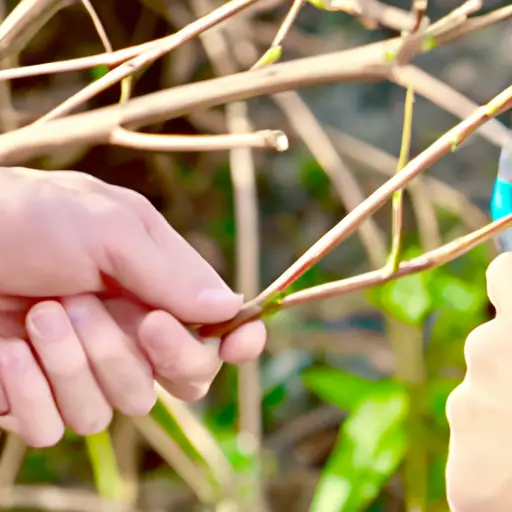Treating Poison Ivy Rash: Effective Remedies and Tips
-
Table of Contents
- Treating Poison Ivy Rash: Effective Remedies and Tips
- Key Takeaways
- Introduction: Understanding Poison Ivy Rash
- Immediate Response to Exposure
- Over-the-Counter Treatments
- Prescription Treatments
- Prevention Tips
- FAQ Section
- 1. What does a poison ivy rash look like?
- 2. How long does a poison ivy rash last?
- 3. Can a poison ivy rash spread?
- 4. When should I see a doctor for a poison ivy rash?
- 5. Can I get a poison ivy rash from someone else?
- Conclusion: Managing and Preventing Poison Ivy Rash
- Further Analysis
Treating Poison Ivy Rash: Effective Remedies and Tips

[youtubomatic_search]
Key Takeaways
- Poison ivy rash is caused by an allergic reaction to urushiol, an oil found in poison ivy plants.
- Immediate washing of the skin can help reduce the severity of the rash.
- Over-the-counter treatments, such as calamine lotion and hydrocortisone cream, can help alleviate symptoms.
- Severe cases may require prescription medication and should be evaluated by a healthcare professional.
- Prevention is the best way to avoid poison ivy rash, including learning to identify the plant and wearing protective clothing when in areas where it grows.
Introduction: Understanding Poison Ivy Rash
Poison ivy rash is a common skin condition caused by an allergic reaction to urushiol, an oil found in poison ivy plants. This reaction can result in an itchy, blistering rash that can be both uncomfortable and unsightly. Fortunately, there are several effective remedies and tips for treating poison ivy rash, ranging from over-the-counter treatments to home remedies and preventative measures.
Immediate Response to Exposure
One of the most effective ways to minimize the severity of a poison ivy rash is to wash the skin immediately after exposure. According to the American Academy of Dermatology, washing the skin with soap and cool water within 10 to 15 minutes of exposure can help remove the urushiol oil and prevent a rash from developing or reduce its severity (source).
Over-the-Counter Treatments
Over-the-counter treatments can help alleviate the symptoms of poison ivy rash. Calamine lotion and hydrocortisone cream can help reduce itching and inflammation. Oral antihistamines, such as diphenhydramine (Benadryl), can also help manage symptoms, especially at night when itching can interfere with sleep.
Prescription Treatments
In severe cases, a healthcare professional may prescribe stronger treatments. These can include prescription-strength corticosteroids to reduce inflammation and itching. In some cases, an oral corticosteroid, such as prednisone, may be prescribed.
Prevention Tips
The best way to avoid a poison ivy rash is to prevent exposure to the plant in the first place. This includes learning to identify poison ivy and avoiding areas where it grows. Wearing long sleeves, long pants, and gloves can also help protect the skin when in areas where poison ivy is present.
FAQ Section
1. What does a poison ivy rash look like?
A poison ivy rash typically appears as a red, itchy rash with bumps or blisters. The rash often appears in a straight line or streaks, reflecting the way the plant brushed against the skin.
2. How long does a poison ivy rash last?
A poison ivy rash usually lasts 1 to 3 weeks. However, severe cases may last longer and require medical treatment.
3. Can a poison ivy rash spread?
A poison ivy rash itself is not contagious and cannot spread to other parts of the body or to other people. However, if urushiol oil remains on the skin or on clothing or other objects, it can cause new rashes.
4. When should I see a doctor for a poison ivy rash?
You should see a doctor if the rash is severe, covers a large area of your body, is on your face or genitals, or if it doesn’t improve within a few weeks.
5. Can I get a poison ivy rash from someone else?
No, you cannot get a poison ivy rash from someone else. The rash is a reaction to urushiol oil, which must come into direct contact with your skin.
Conclusion: Managing and Preventing Poison Ivy Rash
Poison ivy rash is a common but uncomfortable condition caused by an allergic reaction to urushiol oil in poison ivy plants. Immediate washing of the skin after exposure can help prevent a rash or reduce its severity. Over-the-counter treatments can help manage symptoms, while severe cases may require prescription medication. Prevention, including learning to identify poison ivy and wearing protective clothing, is the best way to avoid a rash.
[youtubomatic_search]
Further Analysis
While poison ivy rash is often considered a minor inconvenience, it can significantly impact a person’s quality of life, especially if it is severe or recurrent. Further research into more effective treatments and prevention strategies is needed. In the meantime, understanding how to respond to exposure and manage symptoms can help those affected by poison ivy rash to find relief.


